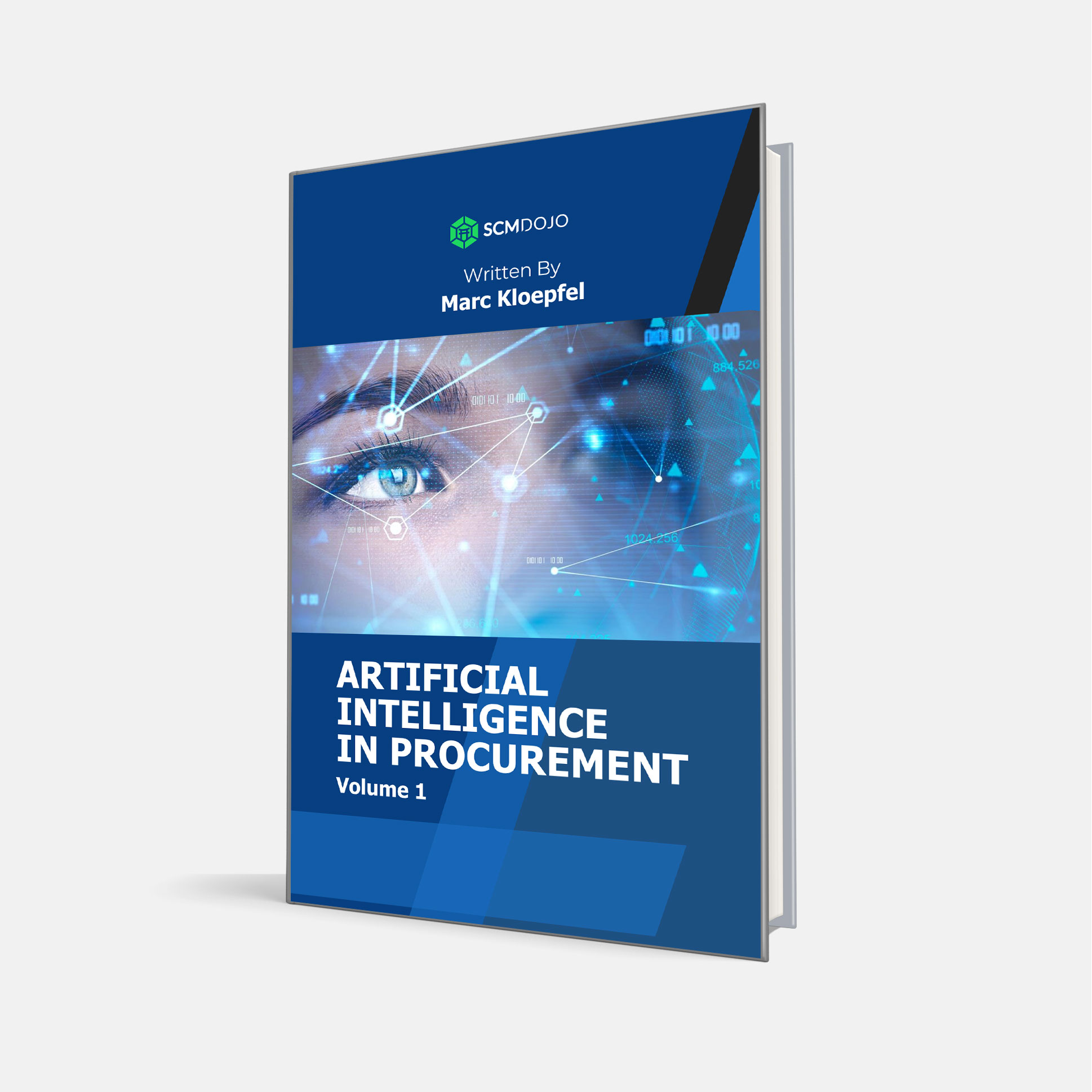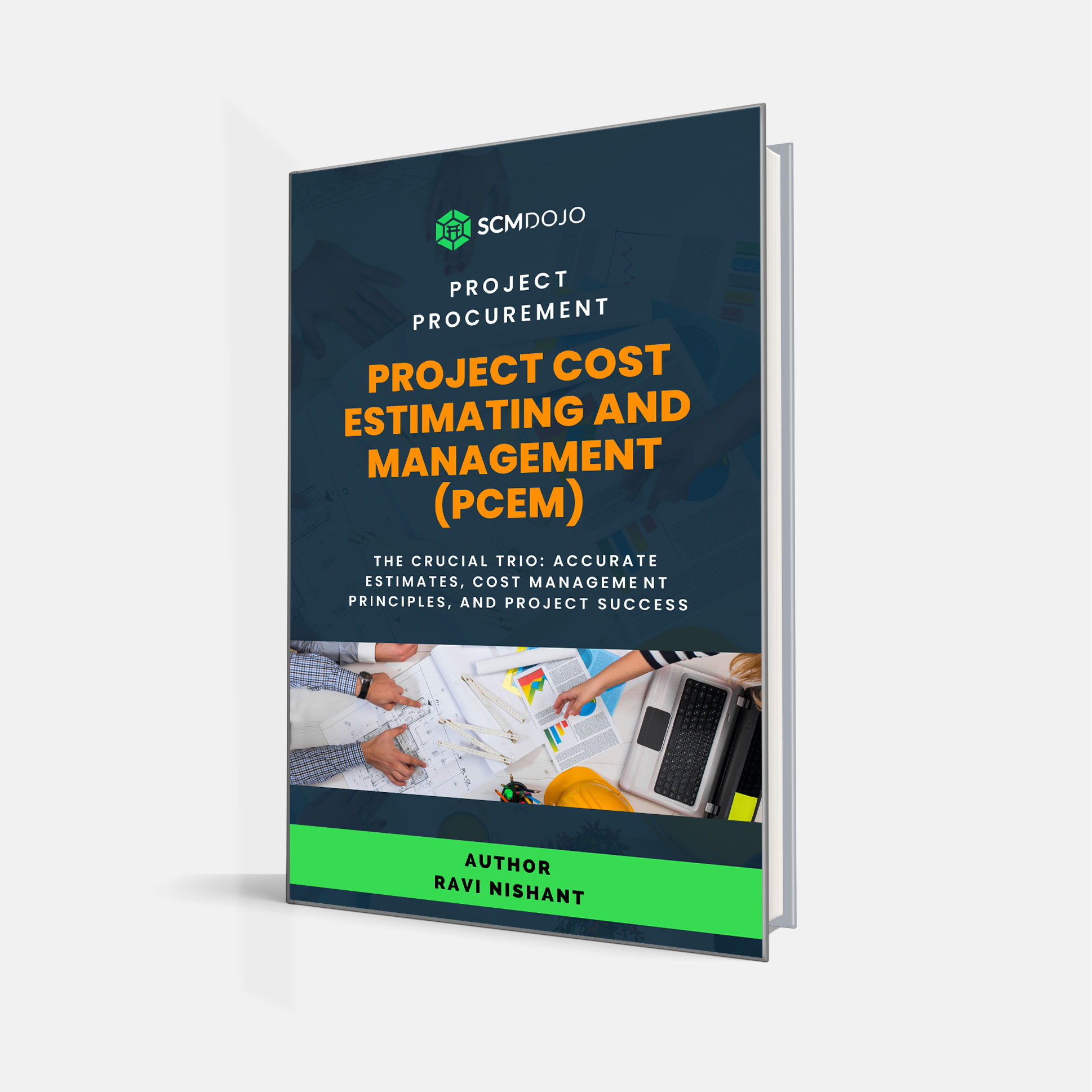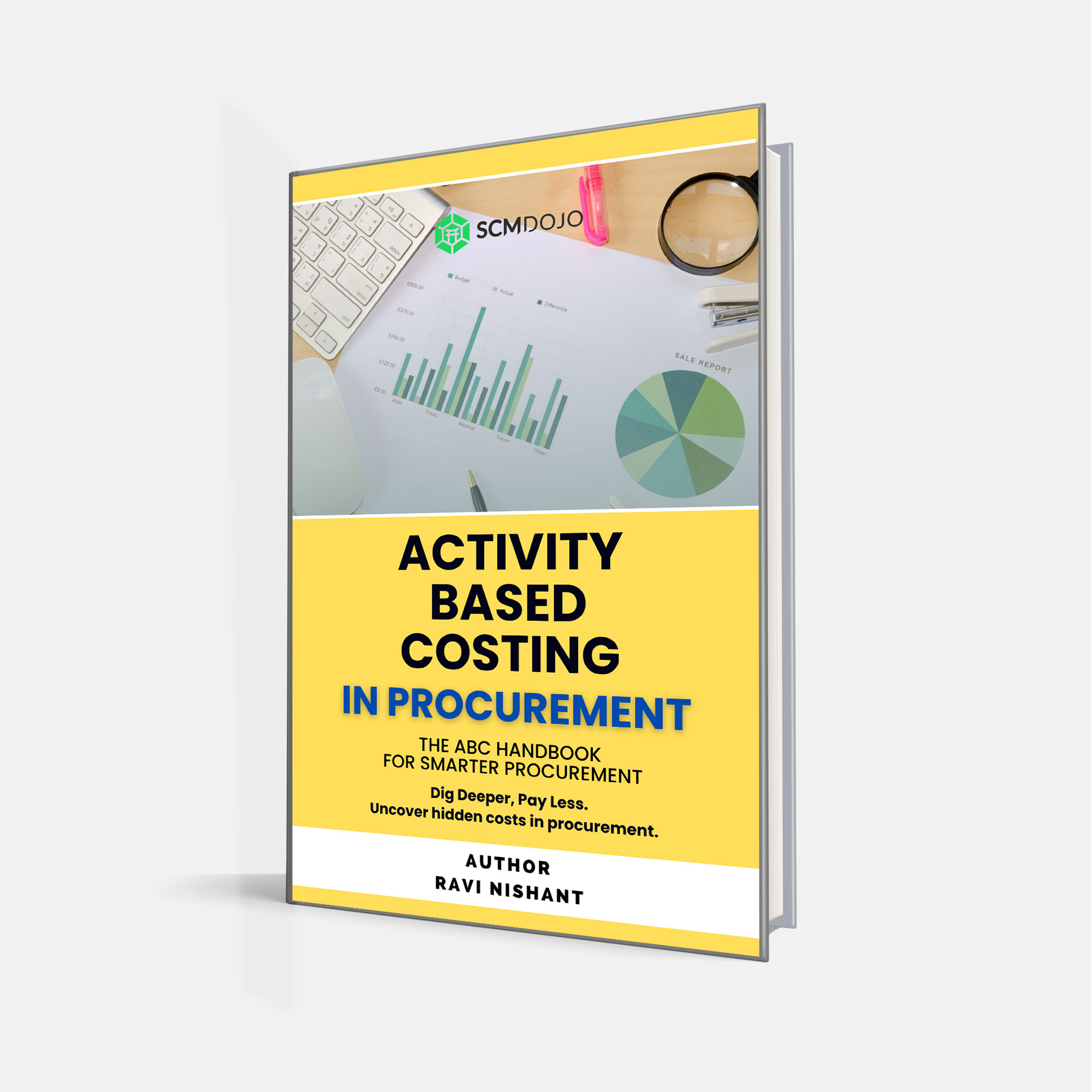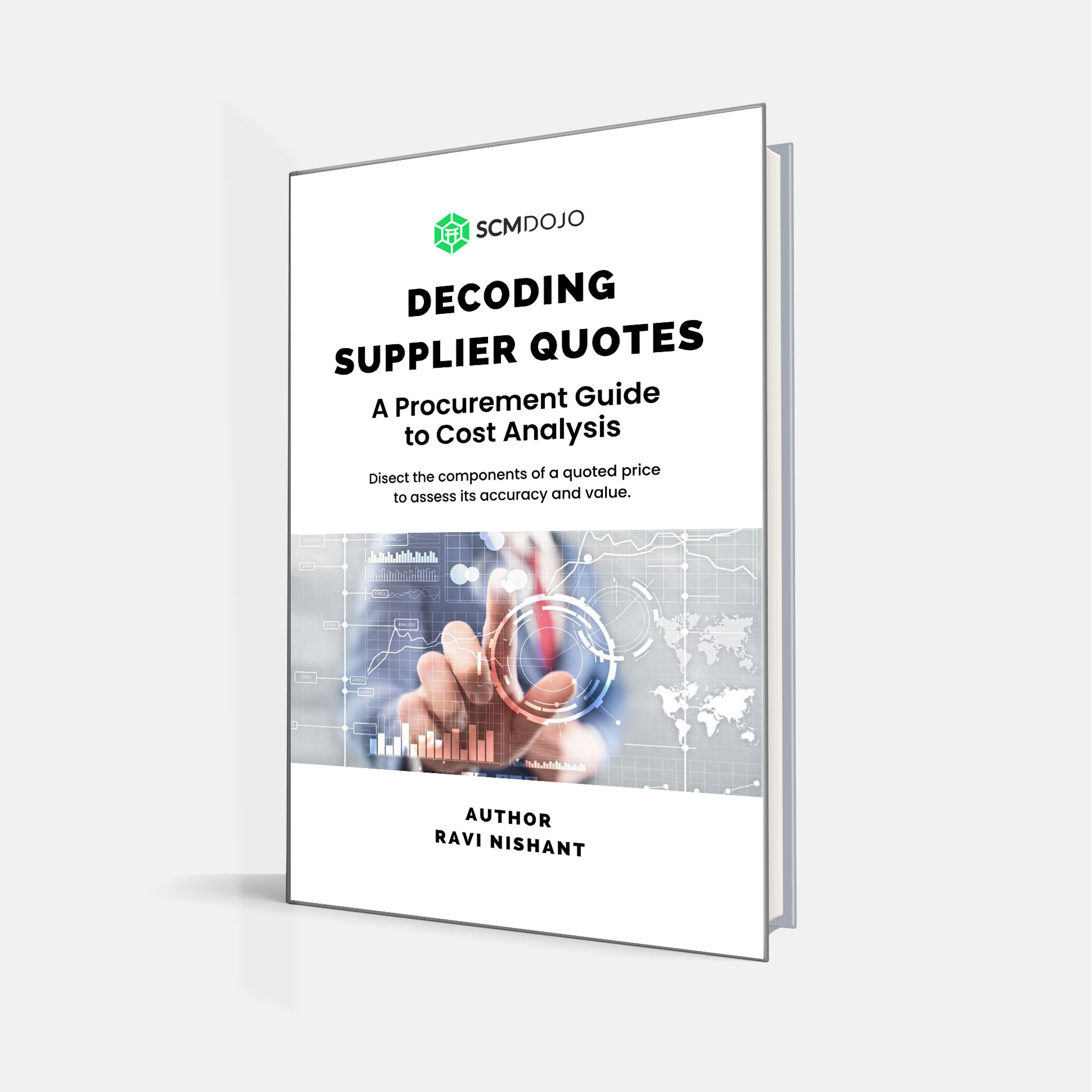PhD Thesis – Enhanced Supplier Development Framework
$55.00
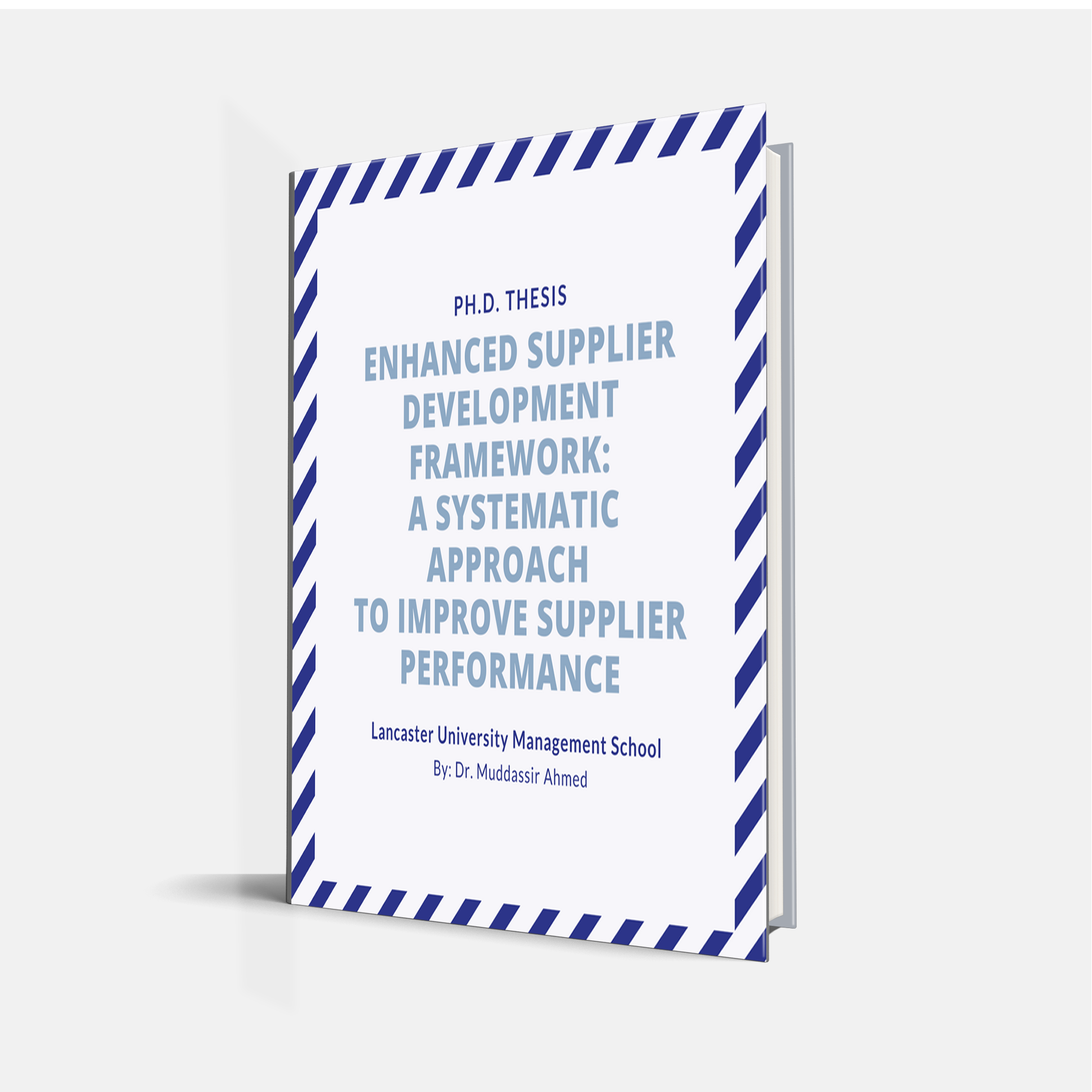
This is the PhD Thesis with the title Enhanced Supplier Development Framework. Dr Muddassir Ahmed conducts research in the University of Lancaster.
PhD Thesis – Abstract
Enhanced Supplier Development Framework: a systematic approach to improve supplier performance
Although Supplier Development (SD) has been of importance to industry for a number of years, the academic community has been slower to study this phenomenon. However, in the last two decades, the focus on SD has increased. This PhD thesis research is particularly addressing SD from both an industry and academic perspective. The specific weakness of existing activities within the industry in deploying their SD programs is the lack of a systematic approach. Given that such an approach could not be identified within the literature either, it is argued here that there was a widespread need for purchasing and supply chain management professionals to be able to identify appropriate SD activities by means of an appropriate method or framework.
To address this research gap, this PhD thesis has developed a conceptual SD framework through action research. This is the first study which demonstrates the development and detailed account of the implementation process. Performance improvements observed include: improving delivery and quality performance of selected suppliers.
And this PhD thesis and doctoral dissertation, empirical evidence was collected from supply chain practitioners via interviews/ questionnaires pre- and post-implementation to identify their views on the important issues to consider when developing and implementing a SD framework.
Key practical implications of the SD framework developed in this doctoral dissertation are the alignment of goals/objectives internally within the organisation and with the suppliers. It is intended to serve as a high level process map for SD and acts as a communication tool to create a common understanding of key steps involved in SD amongst all the stakeholders involved. Future research should explore case studies and/ or involve survey methods with a wider audience to increase the validity of the results. Finally, this thesis takes a buying firm’s perspective only and does not include any views from the supplier’s perspective; therefore taking a supplier’s perspective is also a key recommendation for future research.
PhD Thesis Literature Review
You can download the research paper Supplier Development Literature Review and Key Future Research Areas here for free!
Access our E-Books on our Website!
Artificial Intelligence in Procurement - Volume 1
Project Cost Estimating and Management (PCEM)
Decoding Supplier Quotes: A Procurement Guide to Cost Analysis
Ratings and Reviews
What's your experience? We'd love to know!
Write a ReviewThere are no reviews yet. Be the first one to write one.
No reviews found.
- Upgrade to
Student orPro plan to avail more discounts and perks - Unlimited access, anywhere, anytime
Book Contents
- Acknowledgements 2
- Abstract 3
- Publications 5
- Glossary of Abbreviations 6
- Table of Contents 8
- List of Tables 9
- List of Figures 11
- Chapter 1 Introduction 1
- Role of Supplier Development in Supply Chain Management 1
- History of Supplier Development 4
- Research Motivation 5
- About Company P 7
- Research Objectives and Question 10
- Organisation of the Thesis 13
- Chapter 2 Supplier Development - Literature Review 15
- Definition of SD 17
- The need for a new Literature Review 19
- Classification of the Literature 21
- Classification of article type 23
- Classification of research content 27
- Literature focusing on SD content categories 30
- SD Activities, Practices, Success Factors 31
- Direct and Indirect SD 41
- SD as a Reactive or Strategic process 45
- SD in Lean Six Sigma and SME context 51
- SD - The Supplier Perspective 58
- Conclusion and future research area 60
- Chapter 3 Research Methodology 66
- Research Paradigms 67
- Research Design 71
- Phase I- The Development of the Proposed Conceptual Process map 78
- Phase II- Implementation and Evaluation 79
- Conclusion 101
- Chapter 4 The Development of the Proposed Conceptual Framework 102
- The development of the proposed conceptual framework 103
- Evaluation and analysis of existing frameworks 103
- Process flowchart or diagram 106
- Decision points 106
- Link with SRM, commodity strategy & supplier reduction 107
- Project selection 108
- Cross-functional team work 108
- SD activities 109
- Lean Six Sigma tools & methodology 109
- Conceptual SD Framework 112
- Empirical evidence: Issues to address 114
- Current system/process/approach for SD 115
- Tools/activities/features to improve SP reactively or strategically 116
- SD Linkage with Category/Commodity 117
- Determining suppliers to be developed 119
- Area to be improved in the Current SD process 120
- Views on the proposed SDF 121
- Key Steps of work in the SDF 125
- SD Project Selection 125
- SD Project Execution 129
- OPEX Tools & Methodologies 132
- Conclusion 136
- Chapter 5 Action Research Cycle I: Company P Electrical Division-EMEA 137
- Case company- problem diagnosis 139
- Action Planning - Company P’s ED-EMEA SD Approach 141
- Company P’s ED-EMEA SD Project Execution Approach 142
- Taking Action - Company P’s ED-EMEA SD Project Descriptions 146
- Project SNT 147
- Project NE 156
- Evaluating Action - Company P’s ED-EMEA SD Project Evaluation 164
- Process Flowchart or Diagram 164
- Decision Points 166
- Link with SRM and CS 167
- Project Selection and Cross-functional Teams 167
- SD Activities and use of Lean Six Sigma tools and methodology 168
- Practitioners’ Feedback- Post-Implementation Interviews 170
- Conclusion 175
- Chapter 6 Action Research Cycle II: Company P’s Hydraulics Division-EMEA 178
- Case Company- Problem Diagnosis 180
- Action Planning- The HYD’s SD Project Approach 181
- The HYD’s Procurement Strategy and Organisational Structure 181
- The HYD Procurement Commodity Strategy- Turned Parts 184
- Selecting Suppliers for Development 186
- Taking Action- The HYD SD Project Description 191
- Project MONI 191
- Evaluating Action- The HYD SD Project Evaluation 195
- Link with SRM and Commodity Strategy 195
- Process Flowchart or Diagram 196
- Decision Points 200
- Project Selection and Cross-functional Team 200
- SD Activities and use of Lean Six Sigma tools and methodology 201
- Practitioners’ Feedback- Post-Implementation Interviews 202
- Conclusion 208
- Chapter 7 Discussion and Conclusions 211
- Discussion 211
- Revisiting the Research Questions 212
- Linking all the research elements 218
- Research Contributions 220
- Managerial Implications 225
- Limitations 227
- Future Research 227
- References 230
- Appendix 254
- Appendix 1: A list of literature focusing on SD content 254
- Appendix 2: Previous literature review of SD articles and books, by Krause and Ellram (1997b) 271
- Appendix 4- Action Plan Health Check workshop, SNT 286
- Appendix 5- post-implementation interview questions and replies 287
- Appendix 6 Drill Deep Analysis 296
- Appendix 7- post-implementation interview questions and replies 297
